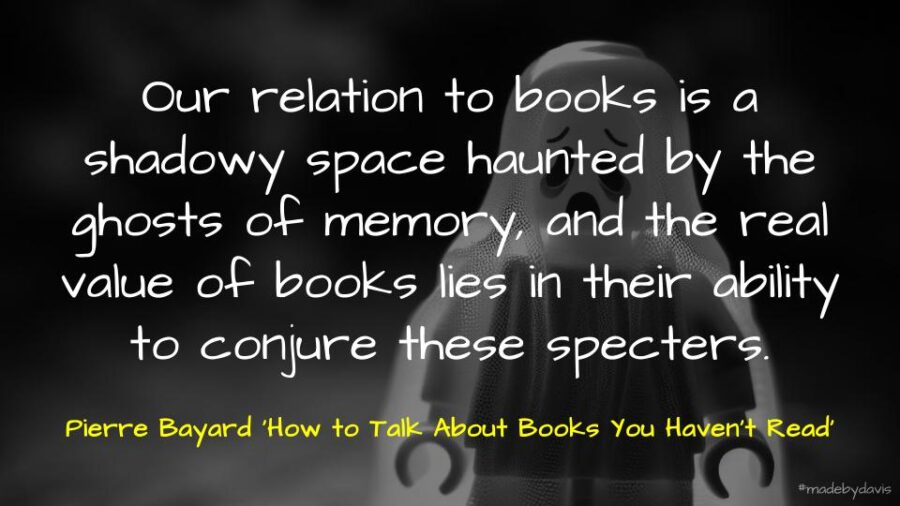With How to Talk About Books You Haven’t Read, Pierre Bayard explores the complexity of texts and why reading is not always what we may think it is. Across twelve short essays, Bayard explores ideas such as the cultural collective library of books we know about, the place of books as a means of discourse with others, the way we share an invented screen book to protect from the real book, books representing a sum of our inner library, and the importance to demonstrate a truthfulness to ourselves, rather than being trapped by the truth. In the end, Bayard calls for a freedom for readers. Extending beyond Roland Barthes’ ‘death of the author’, he makes the case that we are always already talking about books we have not read because we cannot ever actually read them.
Paralyzed by the respect due to texts and the prohibition against modifying them, forced to learn them by heart or to memorize what they “contain,” too many students lose their capacity for escape and forbid themselves to call on their imagination in circumstances where that faculty would be extraordinarily useful.
To show them, instead, that a book is reinvented with every reading would give them the means to emerge unscathed, and even with some benefit, from a multitude of difficult situations.
Source: How to Talk About Books You Haven’t Read by Pierre Bayard
I wish I had read this book when I was at university (although I couldn’t have as it wasn’t written) as it captures many of the ideas that I grappled with as a part of my Arts degree. With regards to the story of Valery simply skimming a book to write an article on it, I was reminded of one of my tutors who in a casual conversation outside of class spoke about how he writes professional reviews for academic books without actually reading them in order to get a copy of the books in question, which touched on his PhD topic. Or touching on Umberto Eco’s talking around a book, I remember my lecturer suggesting that nobody really needs to read Jacques Lacan anymore. I then wrote an essay about why it is important to read Jacques Lacan. Of course, I missed the point, there is always a limit to what can be read.
Where it would have been most helpful was with my Honours thesis. I remember starting out thinking that I was going to write about the historical connections between psychoanalysis and modernist literature. However, I fell into something of a deconstructionist quagmire. With each piece of reading, my ideas would morph and change. In particular, I realised that what we talk about when we talk about psychoanalysis is not always clear or concrete. I ended up arguing that psychoanalysis is just as interpretive as a piece of literature, dividing my discussion between the idea of following a thread and being a part of an interpretive community.
All in all, this was a thought-provoking read – ironically – that had me thinking long afterwards. It was also interesting to think about this alongside Daniel Pennac’s The Rights of the Reader, in which Pennac tries to reinstate the importance of joy when reading.
REVIEW: How to Talk About Books You Haven’t Read (Pierre Bayard) by Aaron Davis is licensed under a Creative Commons Attribution-ShareAlike 4.0 International License.

Mentions